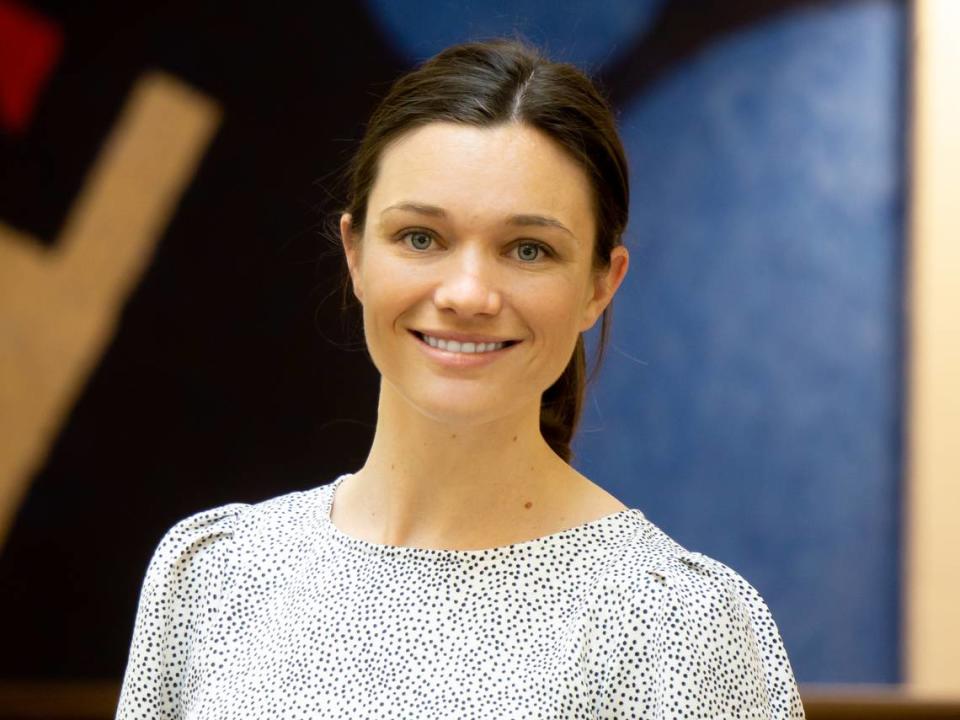Duke University spin-out that aids gene therapy manufacturing raises $7M
Isolere Bio, a spinout from Duke University whose technology aids biotechnology manufacturing, has raised $7 million in seed funding, the company said Wednesday.
Isolere, founded in 2017 by Duke graduate student Kelli Luginbuhl, makes purification technology for adeno-associated viral vectors (AAV), an important element of many of the most promising gene therapies being developed.
Some gene therapies use AAVs as a vehicle to insert new genes into a patient in an attempt to cure certain genetic diseases.
But AAVs, and other cell therapies, can be tricky to manufacture, and to ensure their safety, they must be purified of contaminants.
Isolere believes it has found a more efficient way to carry out this purification.
“There’s been very little innovation in the manufacturing purification field as a whole,” Luginbuhl said in an interview.
She believes that Isolere’s technology can improve viral vector yields by at least 50%.
Maryland-based Northpond Ventures, a biotech investor, led the funding round for Isolere. It’s the first round of investment Isolere has taken, outside of grants from the National Institutes of Health, the National Science Foundation and the N.C. Biotechnology Center.

Growing presence of gene-therapy companies
With a home base in downtown Durham’s Chesterfield Building, Isolere operates in close proximity to a growing cluster of AAV-focused gene therapy companies in the Triangle.
AAVs were pioneered, in part, by the work of UNC-Chapel Hill professor Jude Samulski, and the region has made a name for itself as a place to set up gene therapy manufacturing facilities.
Samulski’s own gene-therapy company, AskBio, was sold to Bayer for $4 billion last year. But other major players have also set up shop in the area, like Pfizer, Biogen and AveXis.
Luginbuhl said her company’s proximity to that cluster is a real advantage.
“The Research Triangle Park area has become a hub for cell and gene therapy,” she said. “Thought leaders in the field live here and have spun out companies to develop gene therapies, and every week there’s a new article about another biotech company (moving here). So, it’s a great backyard for us.”
Luginbuhl says Isolere is already working with some leading viral vector manufacturers, though she declined to name them.
But the company does have some impressive ties to the biomanufacturing space. One of Luginbuhl’s co-founders is Joe McMahon, the former CEO of KBI Biopharma, a large contract manufacturer based in Durham.
Isolere currently has five employees. But, with its new funding and a focus on commercializing its technology, the company plans to grow in the coming months.
Luginbuhl said she hopes to triple the company’s workforce by the end of next year.
She also anticipates that Isolere will expand beyond AAVs in the coming years. The company’s technology, she said, could be used in other viral vectors, like the ones that have been deployed successfully in the mRNA coronavirus vaccines from Pfizer and Moderna.
“AAV is really just a starting point for us,” she said. “We really believe in the potential for our technology to be a true platform ... so part of this fundraising is to expand our applications and start applying the technology to other viral vectors.”
This story was produced with financial support from a coalition of partners led by Innovate Raleigh as part of an independent journalism fellowship program. The N&O maintains full editorial control of the work. Learn more; go to bit.ly/newsinnovate

